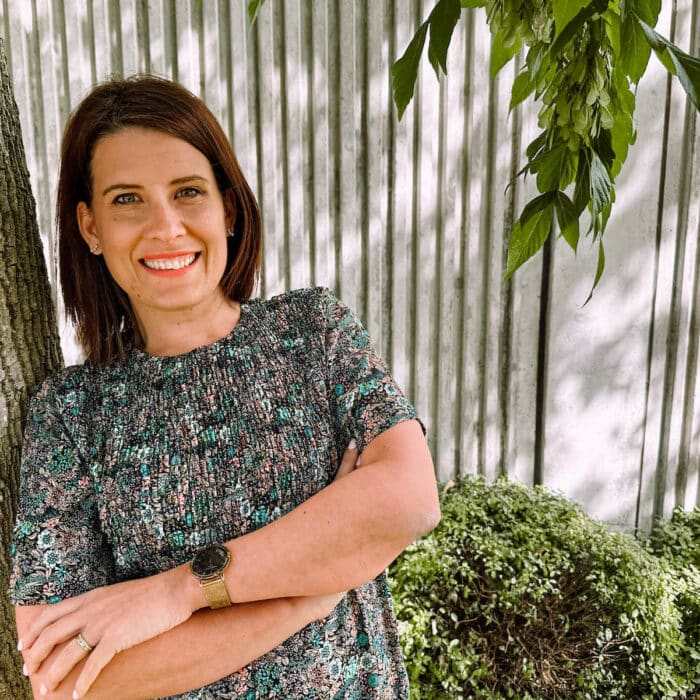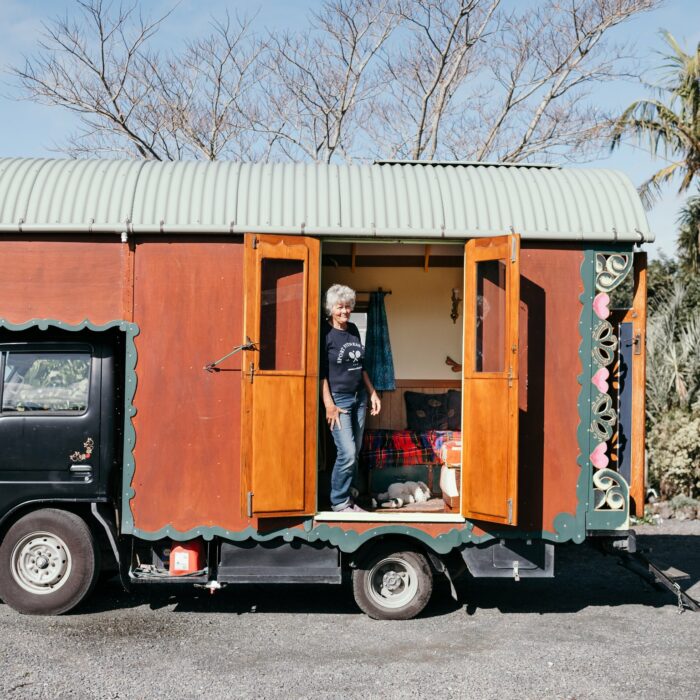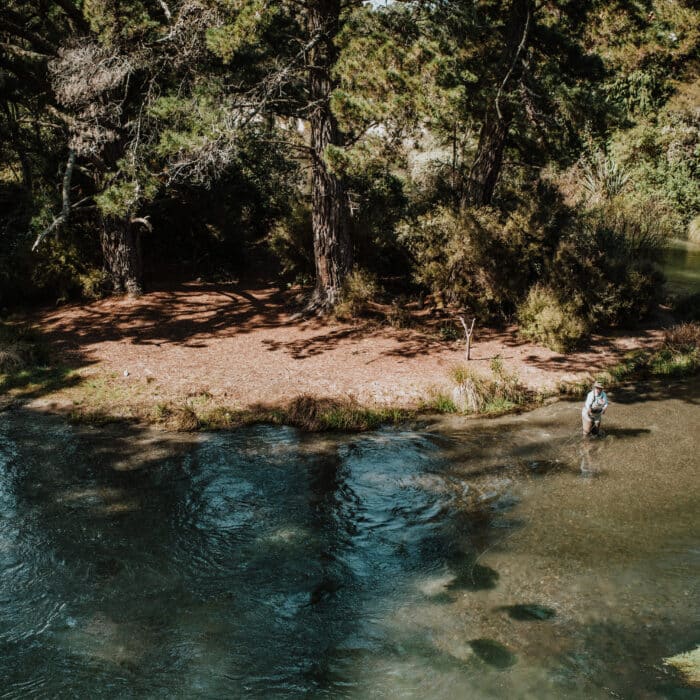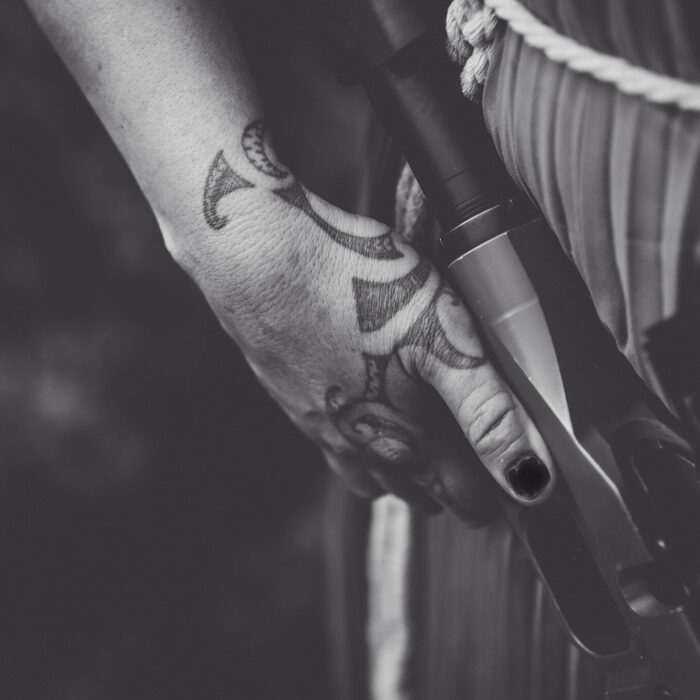17 July 2021
Chasing The Dream
Anita Kendrick.
WRITER: ROYNA FIFIELD-HAKARAIA (NGĀTI RANGATAHI, NGĀTI WHITITAMA)
PHOTOGRAPHER: ABBE HOARE
Anita Kendrick is not your average country-kid-turned-shepherd. She’s always known she belongs in the outdoors, but when a devastating accident left her paralysed from the waist down ten years ago, she had to find a new way to do what she loves. Today, she’s got her sights set on the South Island, where she hopes to pursue her dream of being a high country musterer.

Grey mist often clings to the steep hills in Matiere at this time of year. Deep in the King Country, there are no shops or petrol stations, just valleys and stretches of rugged bush. It’s early morning at Te Whārua Station, a sheep and beef property twenty-five minutes north-west of Taumarunui, and Anita is beginning her daily rounds. “My main role most of the time is a musterer,” she says. “The farming industry has always caught me from a little ticker. I’ve always loved dogs and being outside. I’ve never done well being shut up inside.
The land here at Te Whārua is a third flat, a third rolling and a third steep. Now 28, Anita has worked at the station for over fourteen years, first coming here in 2009, when she left school at sixteen. “My brother worked as a shepherd at Te Whārua first, and I would come out and stay with him the odd time in the holidays,” says Anita. “The manager here is Alan McDonald, but everyone calls him Mickey. He’s a former record-holder in shearing, and he’s been here for about seventeen years. We just got yarning one day, and I said I was looking to leave school and asked if he needed another casual labour unit and that was it. I started casual and went from there.”
Two years on, at the age of eighteen, Anita was living out her dream as a full-time musterer - but only five months later everything changed. On Labour Day in 2011, Anita was in a serious farm-vehicle accident. It is a day she still remembers very clearly. "I rocked up to the farm of our family friends Cliff and Leanne Tomlinson to pick up some extra work," says Anita. "Cliff and my dad were already in full swing docking and Cliff said to me, 'Righto, scoot out and grab the other mob in down in the gully.' So, off I went with my dogs in tow.

Anita made her way to the flock, but came to a stand still at a track that she didn't really like the look of. "I tried the other side of the hill, but there was no track there," she says. "I thought, 'Oh well, that first track is the only way up,' and I went back around that way. I moved the bike forward, but ran into a sheep rut. The bike was 750cc-bigger than what I was used to. I gave it too much grunt and the bike came up. I fell, and the bike landed on my back, pushing my head down between my feet. I stayed conscious the entire time. Somehow, I managed to push the bike off my back, and that's when the pain kicked in. I sort of lay down and tucked my arms under my back, holding my back up, because I could feel a big lump like a bone. I didn't realise at the time it was my spine."
The bike had rolled down the hill, and Anita lay on the ground, waiting for help. Her dogs came over to her, not sure what was going on. One huntaway ran around in loops, crying, nearly wearing a track into the grass. It was Cliff who found her." I'm guessing it was about half an hour and then I heard a bike coming over the hill. I was in a heck of a lot of pain. It wasn't until my old man got there and I saw the look on his face that I realised it was a bit more than I thought.
Due to the remote location of the accident and the seriousness of her injury, it was over five hours before Anita was flown by rescue helicopter to Waikato Hospital and rushed into surgery. The doctors placed two rods with screws along her spine and fused two of her vertebrae together. She was told she was a paraplegic, with only a one percent chance of ever walking again."I can't feel much below my belly button," Anita explains. "So I pretty much have no movement and no feeling. She was a hard eighteen months after my accident. I didn't know what my role was going to be on the farm or what I was going to do. I had to learn the word patience."

Anita's drive and passion pushed her forward and she decided very early on that she was going to do everything she could to keep her job as a musterer. "It's been a very hard thing for me to learn how my new body works and it's taken a long time, but I'm extremely patient now," Anita says."It was easy enough for me to figure out how to drive my electronic wheelchair all over the farm or add hand gears to the side-by-side to take me up into the hills. But retraining my dogs so that they could muster while I sat in the side-by-side instead of walking with them in the paddocks? That was a really hard thing to learn. I pretty much had to work it all out by myself. The first time I tried to take my dogs out I ended up sitting at the bottom of a gully, balling my eyes out."
Always there in the background, Anita's family, friends and work colleagues have been unwavering in their support and their belief in her. "I come from a family that likes to get things done and I always have that driving me behind the scenes," she says. "There were definitely times when it would have been easier to give up. I'm extremely lucky, my boss, Mickey, took a punt on me and said, 'Right, I'm opening the door for you, but you have to do the work to prove that it's going to work.' And it has. He knew my work ethic and what I was like as a person, so that worked in my favour. He didn't fart-ass around me or treat me any different. I've always been one of the boys, and I still am one of the boys."

Today, life at Te Whārua Station has settled into a comfortable rhythm for Anita. She is grateful to be surrounded by the hills and the quiet, doing what she loves with her loyal team of farm dogs by her side."Without my dogs, I probably wouldn't have a job," she says. "They are my main tool, and are pretty much my legs, really. A lot of people think that because someone is in a wheelchair they can't work in this industry. Doing what I do has opened up a lot of people's eyes. I cook. I clean. And no one lives with me. Sometimes when I tell people that I'm a musterer -the look on their faces! I have a lot of fun with that."

Through it all, the one thing that has kept Anita going is her dreams. They're as ambitious as ever, and they're calling her south. "It was about two years ago when I started to feel a new rumbling in my tummy," she says."I've always wanted to travel down the country going from job to job and seeing the different regions. Even before my accident, I wanted to end up in the South Island. As a kid I would watch the high country stations on Country Calendar, doing long musters with a big team of dogs. I'm ready for a new job and a new adventure."
The sun begins to sink behind the ridge of the western hills, and as Anita looks out across the land, it's almost like she's looking towards her future. "I just need someone to see my good track record and my work ethic and take a punt on me like Mickey did all those years ago," she says. Her team of dogs lie in their kennels, knackered after a hard day's work. Anita latches the last kennel door closed with a big smile on her face. "I've definitely learnt that someone is always worse off, no matter what. I'm fit and strong and more motivated than ever to grab the bull by the horns. I have always loved helping people. I just always want to keep moving forward."
If you enjoyed this story, please share with someone else.
This story appeared in the Kōanga Spring 2021 Edition of Shepherdess.
Get your hands on a copy.



